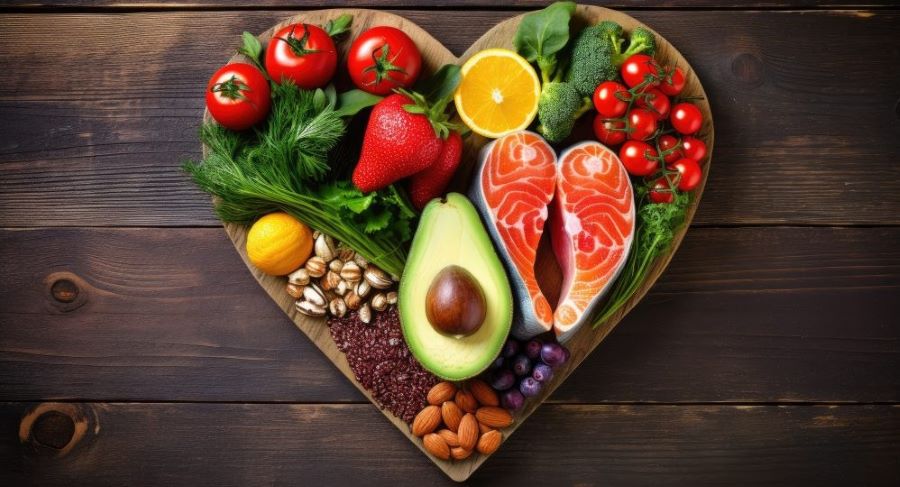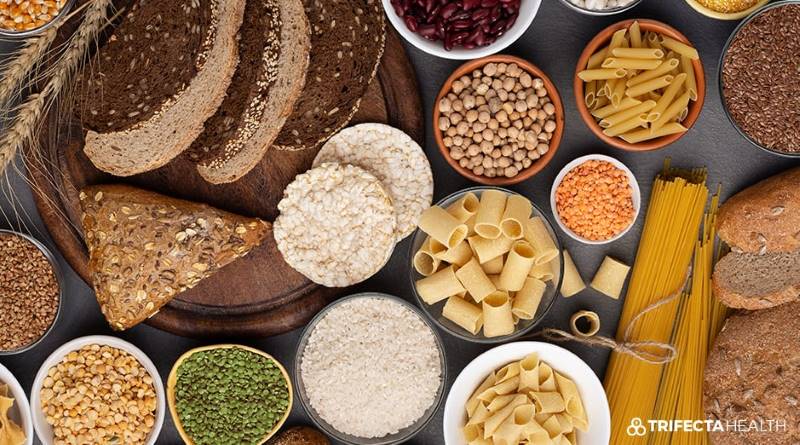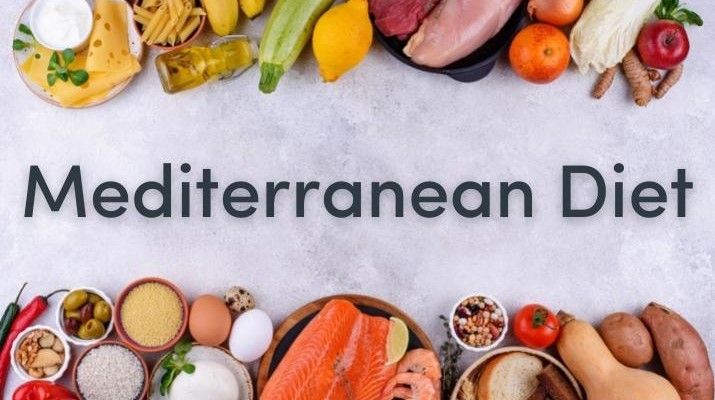Is The Mediterranean Diet Gluten Free – Discover The Truth!

You can enjoy your favorite meals with a gluten-free Mediterranean diet by swapping a few foods. This diet is healthy and can be adjusted for gluten-free needs.
No, the Mediterranean diet isn’t inherently gluten-free. But many of its main foods don’t have gluten. Some Mediterranean dishes have gluten from wheat or barley. You can follow a gluten-free Mediterranean diet by changing ingredients and being careful about what you use.
NOT ONLY THIS. Do You Want to Learn More About “Is The Mediterranean Diet Gluten Free?” So, let’s get started!
Table of Contents:
What is Gluten? – Briefly Explain!
Gluten is a kind of protein made up of gliadin and glutenin. These proteins make dough stretchy. Gluten also helps hold together many processed foods, giving them their texture and shape.

A protein called gluten can be found in barley, wheat, and certain other grains. Most people can digest gluten without any issues, but for some, like those with celiac disease, it can cause tummy troubles and inflammation.
If you fall into this category, we’re here to assist with any queries about following a gluten-free Mediterranean diet.
Benefits Of a Gluten-Free Mediterranean Diet – Must Consider It!
1. It Improved Digestive Health:
Cutting out gluten, which bothers many people, can help you digest better, reduce bloating, and make your stomach feel better. This can lead to fewer digestive issues like gas, cramps, and diarrhea, making you feel more comfortable and energetic throughout the day.
Additionally, eliminating gluten may also improve the health of your gut lining, promoting better absorption of nutrients and overall gut health.

2. It Helps To Reduced Inflammation:
The Mediterranean diet, packed with anti-inflammatory foods like fruits, veggies, and omega-3 fats, can be even more beneficial by cutting out gluten. This reduction in inflammation may lower the risk of chronic diseases such as arthritis and inflammatory bowel diseases.
Also read: Can You Eat Avocado On Mediterranean Diet – Unveiling The Truth!
3. Better Blood Sugar Control:
Eating whole, natural foods like fruits, veggies, and lean proteins is part of a gluten-free Mediterranean diet. It helps keep blood sugar levels steady. This is especially good for people with diabetes or those who might get it.

4. This Diet Keeps Your Heart Healthy:
The Mediterranean diet is famous for being good for your heart. It can lower cholesterol, reduce blood pressure, and lower the chance of heart problems. The diet can make your heart even healthier by eliminating processed foods with gluten. So, add heart-healthy options like nuts, seeds, and beans.
5. Keeps Your Weight Manage:
Switching to a gluten-free Mediterranean diet can help you lose and keep weight off. Eating foods full of nutrients and not processed controls how much you eat. You might feel fuller, have fewer cravings, and lose weight more steadily over time.
6. It Enhanced Mental Health:
The Mediterranean diet focuses on fresh fruits, veggies, fish, and olive oil, which can help your brain work better and lower the risk of feeling sad or worried. Taking out gluten, which might make mood problems worse for some people, can also help with mental health and feeling good emotionally.
7. Boosted Immune System:
Like the Mediterranean diet, eating lots of antioxidants, vitamins, and minerals can strengthen your immune system and help you fight sickness. Adding gluten-free whole grains such as quinoa, brown rice, and buckwheat can also help your immune system while giving you a varied and satisfying meal.

I recommend the gluten-free Mediterranean diet for people aiming to lose weight. It not only aids in shedding pounds but also provides additional benefits. This diet is especially beneficial for those with celiac disease and supports overall gut health and more. Keep up with this healthy diet!
Merging The Mediterranean And Gluten-Free Diets – Have A Look!
Many people praise the Mediterranean diet for its health perks. Research shows it might lower the chances of heart disease, cancer, Alzheimer’s, and other long-term illnesses. This diet focuses on eating many veggies, fruits, beans, whole grains, and good fats.
Seafood is inherently gluten-free; it simply depends on the method of preparation. So, You can add shrimp and canned tuna to your Mediterranean diet.
Even though the Mediterranean diet doesn’t naturally avoid gluten, you can still do a gluten-free version. Just be careful about what you eat, and watch out for hidden gluten. With some smart food picks, you can blend these two diets well. To help you out, we’ve made this helpful guide.

And here you go! You have learned the definition of gluten, the benefits of a gluten-free Mediterranean diet, etc. Now, we are going to discuss gluten and gluten-free foods. Feel free to visit this community website.
Ordinary Mediterranean Diet Foods With Gluten – Be Aware!
- Grains and wheat products are the primary sources of gluten in a gluten-free diet.
- Gluten-containing grains include:
- Whole wheat (including whole-wheat pastas, breads, and crackers, as well as farro and couscous)
- Rye
- Barley
- Oats are naturally gluten-free but often processed with wheat products, so it’s essential to check that your oats are labeled gluten-free.
- Some individuals with celiac disease may be sensitive to oats due to the protein avenin, which is similar in structure to gluten.
- It’s generally safe for most individuals with celiac disease to continue consuming oats, but it’s essential to pay attention to how your body responds after eating them.
Also read: Is Ground Turkey Ok For Mediterranean Diet – Explore Ground Turkey Options!
Foods with “Hidden” Gluten – Let’s Checkout!
- Gluten can be found in soy sauce, so choose a gluten-free variety.
- It’s hidden in many salad dressings, frozen meals, and granola bars.
- Some unexpected foods like malt syrup or wheat starch contain gluten.
- You can learn more about gluten-free labels from the FDA.
- The best way to ensure something is gluten-free is to check the ingredient list.
- Cooking your meals at home is another way to guarantee your food is gluten-free.
- For more information on gluten-containing foods, visit the Celiac Disease Foundation.
Which Foods Are Gluten-Free And Part Of The Mediterranean Diet? – Explore Your Taste!
Some whole grains like buckwheat, corn, oats, rice, and quinoa don’t have gluten! These grains can replace farro, barley, and other foods with gluten.

Many new gluten-free products are available now, making it easier for many people to follow a 7 days gluten-free diet plan. For example, many new types of pasta made from legumes or rice flour don’t have gluten.
Most Mediterranean diets don’t have gluten, but always check ingredient labels to ensure it’s safe for you. Legumes, veggies, fruits, nuts, fish, and meat are all full of nutrients and don’t have gluten naturally.
Alternatives For Whole Grains That Don’t Have Gluten – Keep In Mind!
| Gluten-Containing Whole Grains | Gluten-Free Whole Grains, Nut Flours |
| Wheat flour | Buckwheat |
| Barley | Millet |
| Couscous | Quinoa |
| Bulgur | Brown Rice |
| Farro | Whole Grain Cornmeal |
| Commercial Oats | Nut flours (almond, hazelnut) |
Your Gluten-Free Mediterranean Diet Toolkit – Get Started Now!
Grains: Choose gluten-free choices like buckwheat, corn, oats, rice, and quinoa.
Legumes: Lentils, chickpeas, and other beans are great for protein and don’t have gluten.
Fruits and Veggies: Fresh fruits and veggies are essential in the Mediterranean diet and are all gluten-free.
Protein: Fish, chicken, and lean meats are all gluten-free. Just watch out for breaded versions.
Healthy Fats: Olive oil, avocados, and nuts are good fats without gluten.
Dairy: Cheese, yogurt, and dairy products are usually gluten-free, but check labels to be sure.

Tips To Follow A Gluten-Free Mediterranean Diet – Check It Out!
The Mediterranean diet has many yummy and healthy snacks and salad choices. Adding some classic Mediterranean gluten-free foods can make your meals even better.
For example, avocados are really versatile and full of good fats. You can spread mashed avocado on gluten-free wholegrain toast or add chopped avocado to omelets and salads. Hummus is another good option. It’s made from chickpeas and can replace mayonnaise in sandwiches or be used as a veggie dip.
Also read: Can You Eat Sourdough Bread On Mediterranean Diet – Take The First Step Towards Healthier Lifestyle!
Greek yogurt is also great. It has less lactose than other dairy and can be used as a topping for veggies or mixed with gluten-free oatmeal and fruit. You can also put it in smoothies or have it for dessert with honey and walnuts.
Doing outdoor activities along with the Mediterranean diet is an excellent way to stay healthy and happy. Instead of eating starchy or sugary snacks, try nuts or dried fruits, which are common in the Mediterranean diet.
Lastly, sharing food with family and friends is a big part of Mediterranean life. It’s about enjoying healthy and tasty food together.
Gluten-Free “Have on Hand” Items for the Mediterranean Diet – Review It!
| Fruit | Healthy Fats | Seeds | Nuts and Peanuts | Veggies | Protein |
| All and any fruits | Olive oil | Sunflower seeds | Almonds, Walnuts | Sundried tomatoes | Fish |
| Lemons, Limes | Olives | Garlic | Eggs and Poultry | ||
| Avocado | Meat (small amounts) | ||||
Congratulation! You got all the information regarding “Is The Mediterranean Diet Gluten Free.” If u want to read more discussion, visit this forum website.
Frequently Asked Questions:
1. Can I eat a Gluten Free Mediterranean Diet?
Yes, you can eat a gluten-free Mediterranean diet. The Mediterranean Diet isn’t just about pasta and bread. There’s a lot of great food in the Mediterranean that doesn’t have gluten. Most Mediterranean recipes are gluten-free.
2. Can I enjoy pasta on a gluten-free Mediterranean diet?
Yes, there are gluten-free pasta options made from rice, corn, quinoa, or legumes that can be enjoyed as part of a Mediterranean-style meal. These pasta alternatives provide variety to your diet and offer additional nutrients like fiber and protein.
3. Are desserts off-limits on a gluten-free Mediterranean diet?
Not at all! Many Mediterranean desserts are naturally gluten-free, such as fresh fruit, Greek yogurt with honey, or almond-based sweets. These desserts not only satisfy your sweet tooth but also offer health benefits.
Conclusion:
The Mediterranean diet isn’t naturally gluten-free. It can be adapted to meet gluten-free needs, by making smart food choices and staying alert to hidden sources of gluten. Individuals can enjoy the diet’s health benefits while following a gluten-free lifestyle.
Adopting this method fosters holistic health and promotes the intake of nutritious, wholesome foods.

Hi! I’m Olivia Steeve, a certified nutritionist with over 11 years of experience in the field of diet and nutrition. At DietFitts, I focus on providing scientifically-backed, practical advice to help individuals achieve their health and fitness goals through balanced eating. I share insights, tips, and personalized guidance to help you make healthier choices and live your best life.








